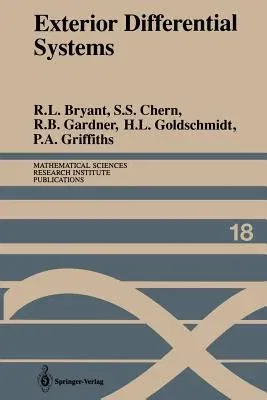Robert L Bryant
(Author)Exterior Differential Systems (Softcover Reprint of the Original 1st 1991)Paperback - Softcover Reprint of the Original 1st 1991, 14 December 2011

Qty
1
Turbo
Ships in 2 - 3 days
In Stock
Free Delivery
Cash on Delivery
15 Days
Free Returns
Secure Checkout
Part of Series
Mathematical Sciences Research Institute Publications
Print Length
475 pages
Language
English
Publisher
Springer
Date Published
14 Dec 2011
ISBN-10
1461397162
ISBN-13
9781461397168
Description
Product Details
Book Edition:
Softcover Reprint of the Original 1st 1991
Book Format:
Paperback
Country of Origin:
NL
Date Published:
14 December 2011
Dimensions:
23.39 x
15.6 x
2.49 cm
ISBN-10:
1461397162
ISBN-13:
9781461397168
Language:
English
Location:
New York, NY
Pages:
475
Publisher:
Weight:
675.85 gm

